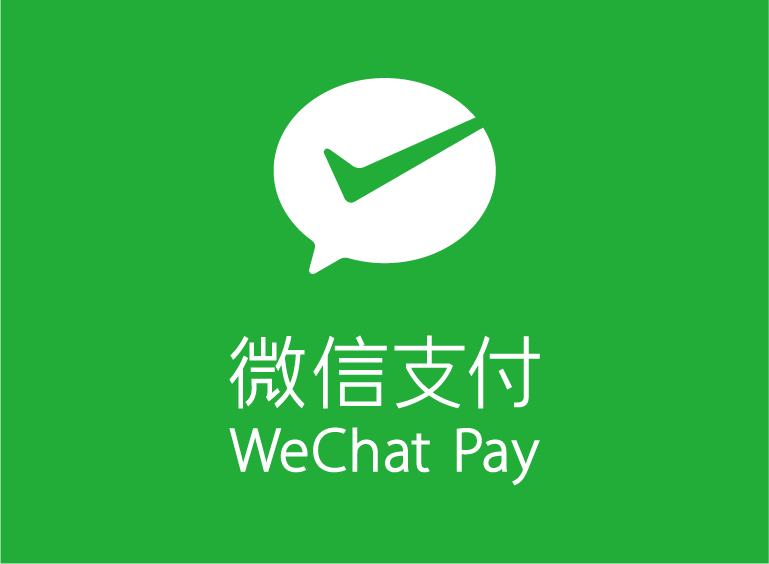China's biggest mobile payment platforms now accept VISA & Mastercard
The omnipresent WeChat Pay and Alipay are finally much easier for international vistors to China. Here are their practical guides.
This is not the sort of serious policy stuff you usually get here, but it’s so practically important for anyone traveling to China these days, so let me make an exception.
After China lifted the 3-year-long draconian travel restrictions in the wake of COVID-19, one of the biggest and most frequent complaints from international visitors to China is being shut out of the Chinese life ecosystem of mobile payment.
In such an almost cashless society, it’s nearly impossible to get around without Weixin(Wechat) Pay or Alipay, the two dominant mobile payment platforms developed by Tencent and Ant, two privately-owned tech giants. (China’s government-run digital yuan is an also-ran at best - at least so far.)
Previously, international visitors report great difficulty in linking their foreign bank cards to the two platforms, resulting in inability or significant inconvenience to pay for things in China where many shops and restaurants now only accept mobile payment rather than credit cards or cash.
Today, Tencent says Weixin(WeChat) Pay will is accepting bank cards from Visa, Discover Global Network (including Diners Club), JCB, and Mastercard to pay at tens of millions of merchants such as dining, transportation, shopping, and hotel accommodation, including small and medium-sized merchants, in China. Alipay says it is accepting bank cards issued by Visa, Mastercard, Diners Club International, and Discover.
People entering the Chinese mainland can use their passports, Mainland Travel Permit and Mainland Residence Permit for Hong Kong SAR, Macau SAR, and Taiwan residents, or Foreign Permanent Resident ID Card to set up their Weixin(WeChat) Pay and link an international credit card or debit card.
A slight catch is there is a limit of 6,000 yuan RMB ($835) for single transactions, a cumulative limit of 50,000 yuan RMB ($6,956) for montly transactions, and a cumulative limit of 60,000 yuan RMB ($8,347) for yearly transactions, according to Tencent, where a 3% transaction fee will be applied for single transactions above 200 yuan RMB ($28). Transactions fees below that in a single transaction are waived.
A Chinese government push is hinted behind the two private companies’ expansion of mobile payment services to foreigners. Tencent says
Previously, Chinese regulators encouraged the refinement of mobile payment solutions for visitors to improve their payment experience. Domestic payment service providers are also encouraged to partner with overseas card issuers to provide mobile payment to overseas visitors in accordance with rules and regulations.
The limit of transactions appear to be above China’s existing rules on cross-border payment, such as a central bank regulation in 2015.
Administrative Measures for the Online Payment Business of Non-Banking Payment Institutions
The People's Bank of China
December 28, 2015
Article 11 A payment institution shall conduct correlation management of all payment accounts opened by a same client in the institution, and conduct categorized management of individual payment accounts according to the following requirements:
(1) For an individual client that passes the verification of basic identity information in a non-face-to-face manner through at least one legal and safe external channel, and opens a payment account with the institution for the first time, the payment institution may open a Class-I payment account for him or her, the balance in the account may be used for consumption and account transfers only, and the accumulative amount of balance payment transactions shall not exceed 1,000 yuan as of the date when the account is opened (including account transfer from the payment account to the client's same-name bank account).
(2) For an individual client whose identity is verified by the payment institution or by a partner authorized by the payment institution face to face, or whose basic identity information is subject to multiple cross-validation by at least three legal and safe external channels in a non-face-to-face manner, the payment institution may open a Class-II payment account for him or her, the balance in the account may only be used for consumption and account transfer, and the accumulative amount of balance payment transactions in all payment accounts during a year shall not exceed 100,000 yuan (excluding account transfers from the payment account to the client's same-name bank account).
(3) For an individual client whose identity is verified by the payment institution or by a partner authorized by the payment institution face to face, or whose basic identity information is subject to multiple cross-validation by at least five legal and safe external channels in a non-face-to-face manner, the payment institution may open a Class-III payment account for him or her, the balance in the account may be used for consumption, account transfers, and the procurement of investment and wealth management and other financial products, and the accumulative amount of balance payment transactions in all payment accounts during a year shall not exceed 200,000 yuan (excluding account transfers from the payment account to the client's same-name bank account).
The channels for the external verification of clients' basic identity information shall include but not be limited to the database of government departments, the information system of commercial banks, and commercial databases, among others. The verification of individual clients' basic identity information through commercial banks shall apply to Class-I bank accounts or credit cards.
As the private mobile payment platforms have few ways to verify its foreign users’ identity, Tencent and Alipay were limited by the regulation based on the Know-Your-Client (KYC) principle.
Infographics on practical guides






